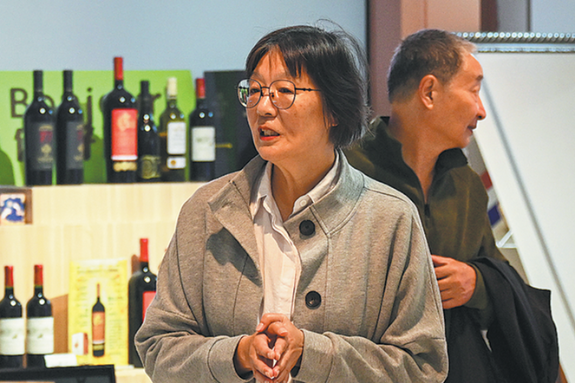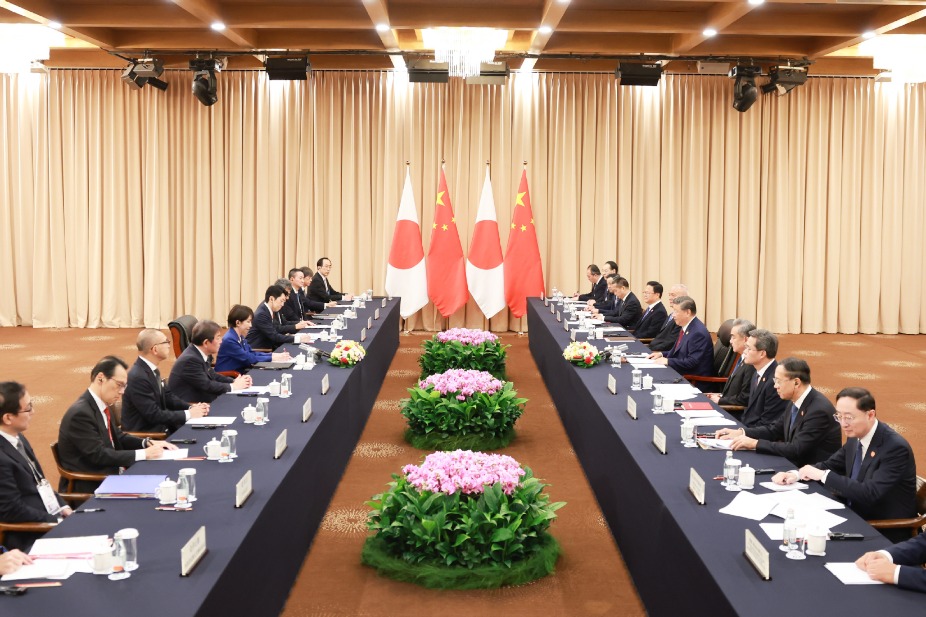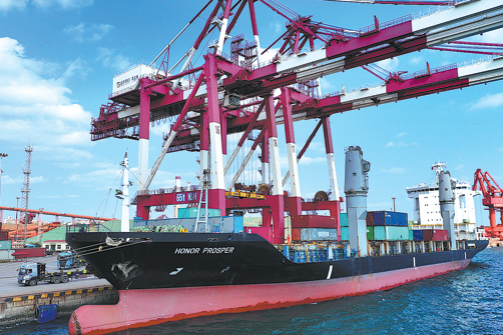Shared destiny bound to bring neighbors together


Ups and downs
Over the years, the two neighbors have managed to maintain good economic interactions despite ups and downs in political relations. However, that began to change in 2018 when a trade conflict initiated by Donald Trump, then-president of the United States, had an effect on the Japanese government.
Japan chose to side with the US by heavily politicizing economic activities with China, including in effect banning the use of communications equipment made by the Chinese companies Huawei and ZTE.
The current US administration of President Joe Biden also focuses on using economic security as a political weapon and is urging its allies to side with it against China. Japan, which has been caught up in the rivalry, appears more enthusiastic than ever to align itself with the US on regional geopolitical and economic confrontation, even at the expense of its economic ties with China.
Wang said: "The government of Japan's Prime Minister Fumio Kishida has been aggressively promoting the so-called economic security concept, with the Japanese parliament passing an economic security bill in May aimed at protecting technology and reinforcing critical supply chains. Such actions have led many to believe that Japan is using economic security as an excuse to shut out China."
However, despite attempts by some Japanese policymakers to bring about what amounts to an economic decoupling with China, there is an apparent gap between the rhetoric and the way companies are going about their business in China. Despite the noise in some quarters, economic ties between the neighbors remain robust and indeed arguably stronger than ever.
To begin with, China is Japan's biggest trading partner, the value of trade having grown 113-fold since 1972 to $371.4 billion last year.
Just how resilient the economic interdependence between the two countries is has been demonstrated in the three years since the COVID-19 pandemic broke out, with China's share of overall Japanese trade reaching an all-time high in both total trade and imports in 2020. In that year, China surpassed the US as the No 1 importer of Japanese goods, and in the first half of this year, Japan's imports from China rose 2.4 percent, a record high for a six-month increase.
As part of the decoupling mentality, the government in Tokyo offered to pay Japanese businesses to shift production back home or into Southeast Asia. However, according to a survey conducted by the Japan External Trade Organization last year, covering 679 branches and companies in China being managed by Japanese conglomerates, only 3.8 percent said they planned to shrink their Chinese operations or withdraw from the country in the next one or two years, the lowest figure since 2010.
According to another survey, conducted by the newspaper Sankei Shimbun in July, of 118 Japanese companies questioned, more than half said business with China should remain as it is or continue to develop. Not one company said a significant distance between China and Japan was needed.
"Japan's alliance with the US is a linchpin of our diplomacy, but we should not isolate China," said Makiko Tanaka, who served as Japan's foreign minister from 2001 to 2002. "We are just banding together and being confrontational toward China."
Yasuo Fukuda, a former Japanese prime minister, was more straightforward, saying that the US and Japan should consider carefully "whether global trade works better by excluding China".
However, there are still some politicians in Tokyo who align themselves with a Cold War mentality rather than being attuned to widespread public sentiment and ideas that find favor in economic circles.
As a result, in its sweeping defense policy plan released this month, Japan labeled Beijing as being the "biggest strategic challenge", even though Kishida had told Chinese President Xi Jinping a month ago in Bangkok that "Japan and China pose no threat to each other ... Japan could hardly achieve development and prosperity without China".

































